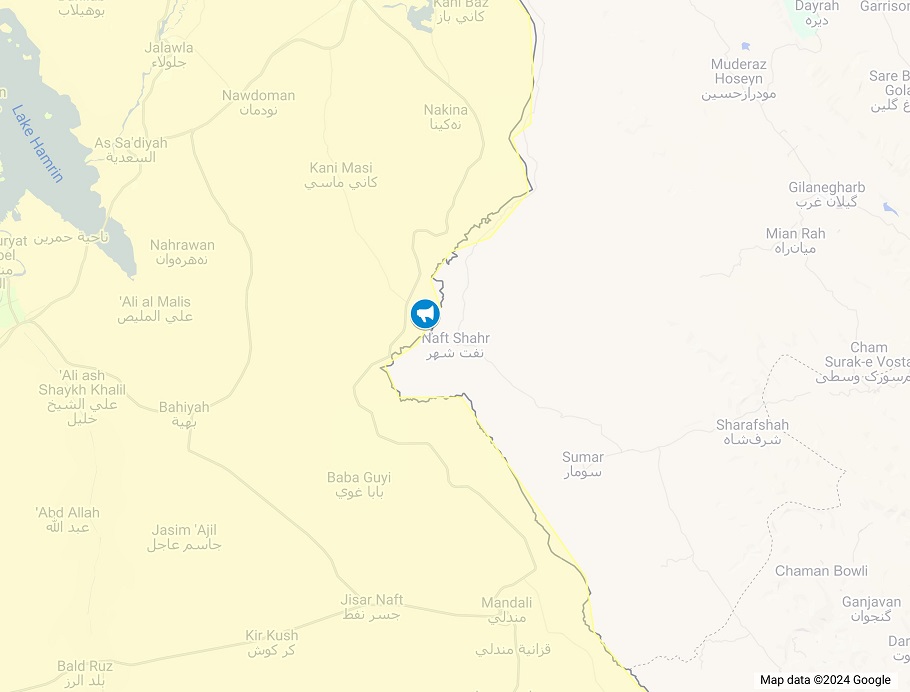958
Kirkuk
- The Iraqi federal government is ready to restart oil exports after renovations on the Kirkuk-Turkey pipeline. An Iraqi oil ministry source informed Rudaw that the pipeline has been tested. It passes through several districts in Kirkuk, Nineveh, and Duhok provinces and has been damaged since 2014 due to Da’esh terrorist attacks. This development allows Baghdad to resume Kirkuk’s oil exports to Turkey, halted along with Kurdistan’s exports after an international court sided with Iraq against Turkey, blocking independent oil exports from the Kurdistan Region.
- Repeated ISIS (Da’esh) attacks in the Rokhana valley (Wadi Shay) prompted the Defense Committee in the House of Representatives to discuss the area’s security. Waed Qado, a Yazidi Kurdish member of the committee, stated that Da’esh sleeper cells are increasing and launching periodic attacks on security forces. A recent terrorist attack on March 29 killed an Iraqi soldier. On October 16, 2017, Iraqi forces took control of security in Kirkuk province after removing Kurdish forces. Security forces claim they foiled a Da’esh plan in Kirkuk on April 3.
- The Iraqi Supreme Court has postponed a ruling for the fourth time regarding the return of Kurdish-owned farmlands to their owners after several farmers filed a lawsuit. In two different cases, Kurdish farmers demanded the return of nearly 20,000 acres in the Dibis and Daquq districts that were taken from their owners and given to settlers by the former Iraqi regime as part of an Arabization process against the Kurds. The Supreme Court delayed a ruling until April 24.
- The Integrity Commission reported investigations into corruption regarding service projects, including road pavements, worth six billion Iraqi dinars in Kirkuk. Investigations target health, municipality, and electricity departments. The commission also announced the arrest of a senior police commander for bribery and extortion
Khanaqin
- In a press conference, Khanaqin’s Mayor, Deler Hassan, announced that a Chinese oil company will conduct a 30-34 year project for the exploration, development, and production of oil and gas in the Neft Khana field on the border with Iran. The mayor noted that 80% of the project lies within Khanaqin’s border and that the Chinese company has been granted a contract by the oil ministry. The field was discovered in 1924 as a partnership between Iran and Iraq.
Shingal (Sinjar)
- On March 30, several public and community leaders, alongside civilian organizations and the local government, signed the “Harmony” memorandum between the Yazidi and Muslim Arab communities in the area. The agreement comprises 11 articles, primarily discussing coexistence and unifying security forces. Many Yazidi leaders accused Sunni Arabs in the region of collaborating with Da’esh during the 2014 genocide against the Yazidis, and they reject the return of Da’esh families from Syria to the area. The Nineveh governor supervised the agreement, which obligates the communities to return to the “rule of law” for disputes. The United States Institute of Peace (USIP) also facilitated the consensus. Separately, a Turkish drone killed a commander of the Sinjar Resistance Units (YBS) on April 3. The airstrike targeted a vehicle near Sinjar Mount, killing the commander and wounding two others. Dozens of YBS and civilians have been killed by Turkey in recent years, which accuses them of being affiliated with the Kurdistan Workers’ Party (PKK).

